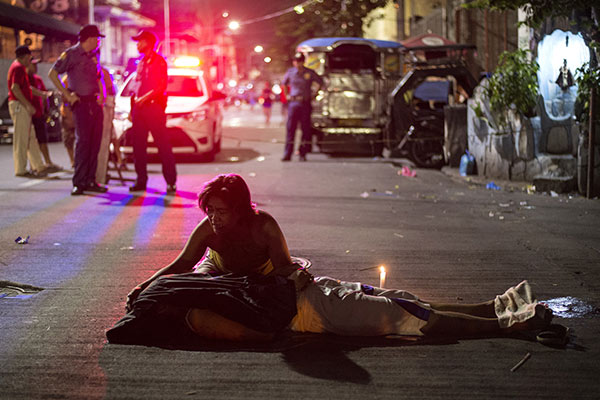The immigration consequences of 9/11
Today marks the 15th anniversary of the 9/11 attacks. I can still vividly recall where I was on that fateful day. It was a Tuesday after the second Sunday of the 2001 Bar exams. We were at my friends' dormitory at the UP Diliman campus studying and suddenly there was on TV the breaking news that the US was attacked. At the time, little did we know that the world has changed before our very eyes.
Since 9/11, the immigration policy of the United States has changed dramatically and to some extent, even controversially. Immigration laws were passed and enacted under the context of national security. For one, the US Department of Homeland Security was created with the vital mission of securing the United States against the threat of terrorism and other threats through enforcement of immigration laws and securing its border. The US DHS, with its expanded budget and increased manpower, has full supervision over the attached agencies of the United States Citizenship and Immigration Services (USCIS) and the US Customs and Border Protection. It was also after 9/11 that security checks were more stringent and more cooperation between state and federal agencies. Initiatives such as ESTA (Electronic System for Travel Authorization), SEVIS (Student Exchange Visitor Information System), IDENT (Automated Biometric Identification System), Visa Security Program, Secure Communities, expansion of Everify were all launched and refined in order to make sure that anyone who enters the US is not a security threat.
It is also after 9/11 that intrusion into an individual's private information is more of an expected reality. In the name of keeping American safe, we hear reports of unauthorized wiretapping of private communications even by ordinary US citizens. A watch list of suspected terrorists is being kept but has since generated a lot of heat because of the manner in which it was compiled. There are other measures that the US government has implemented which aroused negative responses even by the robust defenders of national security. News abound of real-life stories involving racial profiling, discrimination based on being a Muslim or by just wearing a Muslim garb and other xenophobic tendencies. While it is the exclusive right of a country to defend itself and keep its people safe and secure, it also has to make sure that it acts such right in a way that is consistent with the values, rights and freedoms it seeks to protect. With all its criticisms, rightful or not, so far, America has been largely successful in protecting its people by preventing another attack similar to the scale and destruction of 9/11.
Let us then take a moment to say a prayer for those who perished in 9/11 and for the families and loved ones they left behind.
***
This past week, I received calls from my American friends expressing their dismay of how President Duterte, through some colorful language, allegedly insulted US President Obama. Though there is some dispute whether he was misquoted, misinterpreted or even framed, Mr. Duterte should be more mindful on what he says and how he expresses himself. His election to the office of the presidency not just reflects the collective will of the Filipino people that he be their leader in the next six years, but also be the civilized voice that speaks for a civilized country like ours.
Personally, I want him to succeed and I suppose all Filipinos do. Duterte's detractors and critics will always find a way to pounce on him in any way they can and this latest controversy just provides additional ammunition for them while a being a needless distraction for his goals. His well-known habit of cursing in public, even against the Pope, while highly inexcusable and unbecoming of the occupant of the highest office of the land, in reality, does not really bother the common man on the street. What concerns an ordinary Filipino is if he can provide food on the table for his family, or that of a mother if her children would come home safe or that of a husband who wished he could start a business in his hometown so that he would not have to leave his family while working overseas; or of parents who worry about their child under the scourge of drug addiction or that of a student if he can find a job after graduating from college. These and other issues are more important than this latest brouhaha he is in.
Instead of extricating himself from this controversy (which he should not have found himself to begin with), his energies are better spent on how his administration battles poverty, improving public and social infrastructure, decongesting traffic, rooting out crime and corruption, providing better education and job opportunities and ensuring that this country is safe and secure from domestic and international terrorism. And as a people, those should be our concerns as well.
(Editor's Note: This column is not a substitute for professional legal advice obtained from a US licensed immigration attorney. The information contained herein does not constitute a warranty or guarantee or legal advice regarding a reader's specific immigration case. No attorney-client relationship is and shall be established with any reader.
For any questions, comments and observations, please contact Atty. Marco Tomakin at [email protected])
- Latest




















